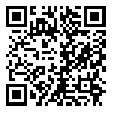This Day in Unitarian Universalist History February 18
1719 – The English Parliament repealed the Schism Act, an extreme High Tory measure to prevent nonconformists and Catholics from educating their own children. Queen Anne died on the day the Act was to take effect in 1714. It was repealed because her successor, King George I, did nothing to enforce it.
The post February 18 first appeared on Harvard Square Library.
Read more at: www.HarvardSquareLibrary.org – the digital library of Unitarian Universalism.


